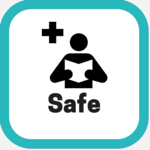General Safeguards for Newborn Circumcisions

- Circumcisions should be done using sterile equipment.
- Infants with bleeding disorders, immune deficiencies, and severe skin disorders/infections should receive appropriate treatment and considerations before circumcision.
- The infant should be monitored by health care providers at all times during the procedure.
Who should perform a newborn circumcision?
- Select a provider who feels comfortable performing circumcision.
- Make sure the provider has done many circumcisions.
- Be assured that the provider will refer you elsewhere if your child’s penis is different or unusual or small or whatever (see CORRECT).
- Request a provider that understands and safely performs pain relief using local anesthesia (both topical and injection).
- Insist that an in-training provider is supervised directly by an experienced provider.
A care provider that offers to perform a newborn circumcision on your child should be well-trained in the procedure. Different providers perform this procedure. They include: OB/GYN physicians, pediatricians, family practitioners, urologists, surgeons, and advanced care providers (nurse practitioners and physicians assistants). Some religious leaders also perform circumcisions and this is most common in the Jewish religion. The training and experience of these different providers vary immensely and because of this, it is very important to ask about their experience, number of procedures, confidence, and outcomes. If the practitioner is hesitant to perform the procedure or does not provide satisfactory experience and outcomes then you should defer the procedure until later, even if your child does not have the procedure done within the first few days of life at the hospital or birthing center.
Many practitioners with considerable circumcision experience will perform the procedure after hospital/birthing center discharge in their office possibly up to 3 months of age. Since this is most commonly an elective procedure your goal is to have it done correctly once instead of conveniently or rushed immediately after birth.
Some Comments From Our Visitors